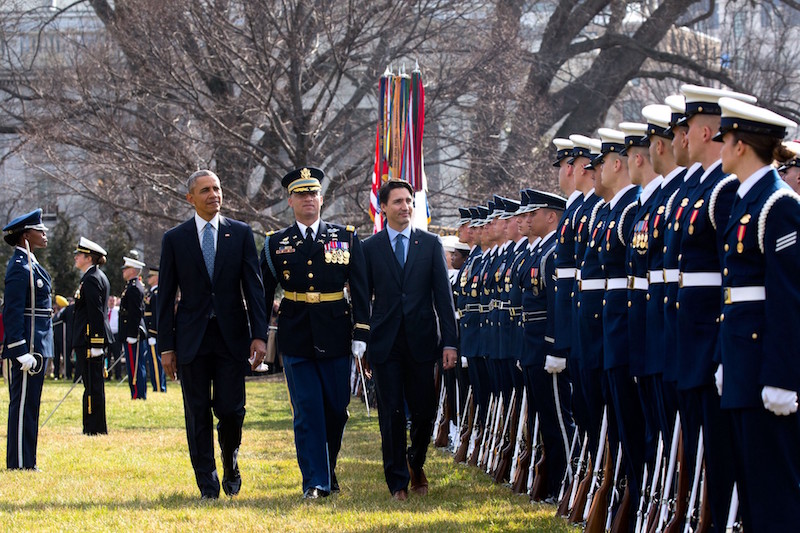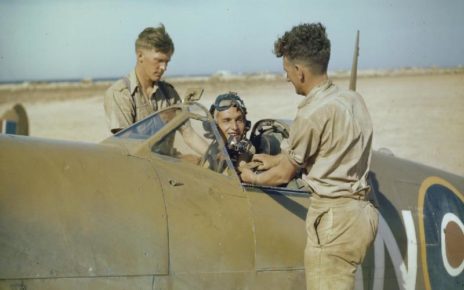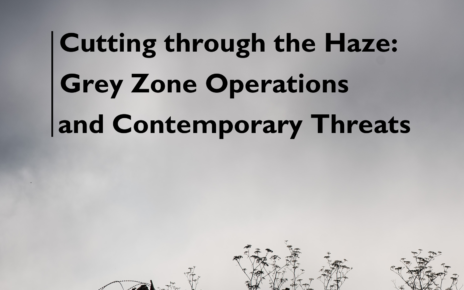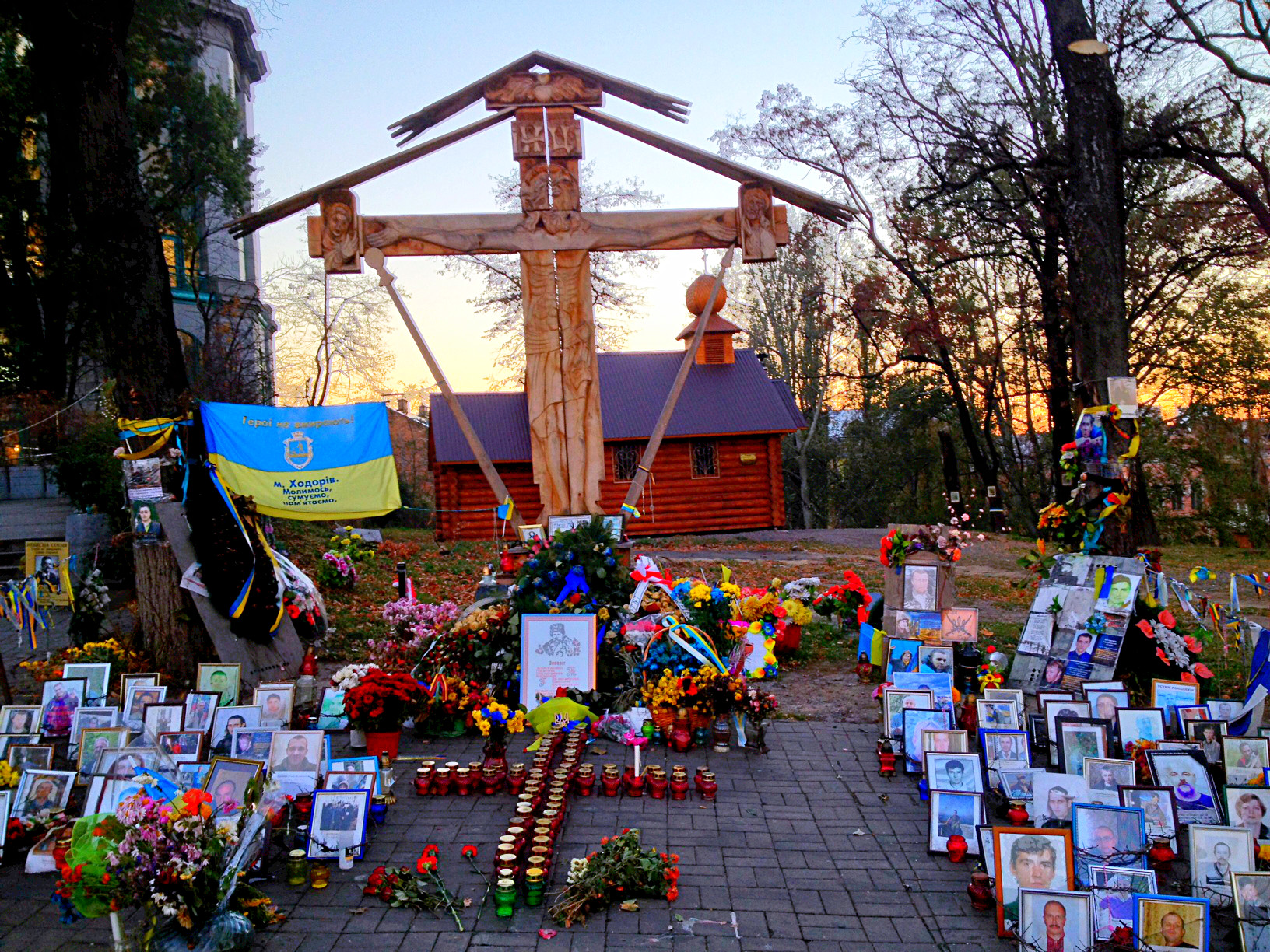Prime Minister Justin Trudeau reiterated Canadian values when he stood up for Canada’s defence spending policies after US President Obama’s remarks in Parliament. He defended Canada’s record on military spending by illustrating the many ways Canadian Forces have successfully accomplished international humanitarian and peacekeeping missions. In particular, Trudeau referenced the Liberal government’s commitment in leading a 1,000-strong NATO force in Eastern Europe during the recent NATO summit. In addition, Trudeau announced on July 8 that Canada will be sending 450 troops, along with armoured vehicles to Latvia in support of the NATO presence in Eastern Europe, early next year. At the NATO leaders’ summit, Canada accepted to take command of the multinational force in Latvia, with Germany, US and Britain take leading roles in Lithuania, Poland and Estonia. Furthermore, Canada will send up to six CF-18s and several naval frigates to Europe, for the purpose of patrolling allied airspace and waters. This deployment to Europe will be Canada’s largest in over a decade. However, Minister Sajjan affirmed that this deployment is in support of NATO presence and achieving responsible dialogue between Cold War rivals rather than agitating Russia. NATO Secretary General, Jens Stoltenberg, echoed Minister Sajjan’s position during the Warsaw Summit stating early that, “[NATO members] don’t want a new Cold War. The Cold War is history and it should remain history.”
Nonetheless, the NATO Summit in Warsaw was not greeted well by Russia. The heads of state and government at the summit released The Warsaw Declaration on Transatlantic Security declaring a renewed commitment in fighting current international security threats. The Declaration focuses on current and potential Russian actions, and instability in the Middle East and North Africa. Canada’s military support for the Baltics was greeted with a warning from Russia. While Latvia is welcoming Canadian forces, Kirill Kalinin, Spokesperson of the Russian Embassy in Canada responded, “Unfortunately, the latest decision of a number of NATO members to build-up their forces in proximity to Russia does not in any way contribute to strengthening the security situation in Europe. Russia is in no way presenting a threat to anyone. However, we see this is a challenge and we will find necessary means to respond to it.” Before this statement however, Russia has already mobilized up to 10,000 additional troops to its Western border, almost five times greater than the promised force of NATO nations to secure Eastern Europe.
Estimates from RAND’s simulated Russian assault over the Balkan region revealed that it would only take 60 hours at most for the Russian military to reach Tallinn and Riga. Retired General, Ants Laaneots, who commanded Estonia’s military forces 5 years ago confirmed that, “Current NATO plans aren’t enough”. Therefore, it is best to hope that such hypothetical situations do not occur. But at the same time, it is also wise to prepare for the worst situation by stationing enough forces in Eastern Europe to establish security without inciting Russia.
Most recent events in Nice have provoked yet another outburst from the Russian Embassy in Canada against NATO. On July 15, after stating their condolences to France after the attack, the embassy used the events in Nice to accuse NATO’s buildup in Eastern Europe as ignoring the threat of terrorism, “Terrorist attack in Nice – another wake up call to join efforts in fighting real threat, not NATO-devised phantoms….Obsolete, irrelevant NATO unable to meet real terrorist threat, wasting money and resources to provoke new Cold War…. Utmostly myopic to succumb to NATO’s build up at Russia’s doorstep instead of joining efforts with Moscow to fight terrorism.”
Nice’s attacker has not yet been established as having any ties with a terrorist group nor is there any evidence of terrorist motives. As well, due to Russia’s military buildup close to the Baltic nations, NATO has had to divert its attention by providing support to their fellow members. Likewise, Foreign Affairs Minister Stephane Dion stated that it was “terribly unfortunate” for Canada to send troops to Latvia instead of a peacekeeping mission in Africa or in different regions of the world. Dion also added that the NATO force is something, “we need to do so because Russia had a completely unacceptable behaviour, regarding especially Ukraine.” Since Canada prides itself in providing support to countries in need, the Trudeau Government has accepted Russia’s challenge in helping secure Eastern Europe from potential threats.
Photo: President Obama and Prime Minister Trudeau reviewing troops (2016). Official White House Photo by Chuck Kennedy via Wikimedia Commons. Public Domain.
Disclaimer: Any views or opinions expressed in articles are solely those of the authors and do not necessarily represent the views of the NATO Association of Canada.




